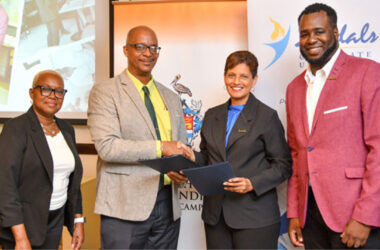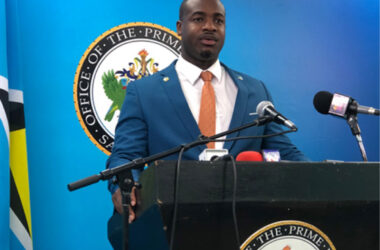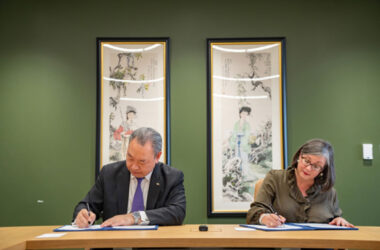ABOUT a dozen reporters got the opportunity Monday to explain what psychological toll they endure during and after covering traumatic stories. They also got some pointers on how to deal with such situations.
The session was held at the National Mental Wellness Centre after a few reporters sought intervention via their WhatsApp group recently. That’s where group member, Glen Simon, who works with the Ministry of Health, stepped in and arranged such a session facilitated by Director of Human Services, Elizabeth Lewis, and clinical psychologist, Ginelle Nelson.
Reporters expressed their concerns with having to cover traumatic events such as crime scenes where loss of life would have occurred. Many said the lingering effects of what they see at such scenes often take a toll on their psyche. As such, Lewis said reporters need to do some introspection from time to time.
“They are exposed to traumatic situations ever so often in the course of their work,” Lewis said on Monday. “They are human beings first and, like everybody else, they are affected by the level of trauma. So it is important for them to be able to manage and deal with the trauma so that they, too, can give of their best in their jobs.”
Lewis said audiences often tend to think that reporters are immune to the effects caused through covering such traumatic stories, adding that “we don’t see them as being human; we just see them as persons carrying stories.”
“So it was very interesting for me today to hear that they, too, have that level of emotions. They are human beings and they feel the pain and trauma when the situations happen,” Lewis said.
Lewis said the coverage of highly-traumatic situations affects everyone: the viewers and the people filming the situation. No one is immune, she said, as “those traumatic situations impact from the child to the eldest person and can evoke different emotions in various persons.” She said for someone feeling depressed and distressed, the airing of certain images can cause further distress and create a level of despondency. The media, she said, needs to show empathy.
“We need to be mindful of that as we present the stories. It’s important for us to get the story out there. It’s also important that we get the message out there that we are mindful that we do not create it in a way that it creates further distress to the persons who are viewing that story,” Lewis explained.
HTS cameraman, Jeremiah Joseph, said the session was a very eye-opening one for him. He said that often being the first photo journalist to reach traumatic crime scenes over the many years he has been in the media has been a challenging experience. The session, Joseph said, made him recognize the damage the camera’s lens can cause at times.
“I never thought that we were having such an impact on people’s lives, especially when we cover those stories, and what damage we could be doing to people,” Joseph said. “(The session) really helped me to understand and know that it also has an impact on me.”
Joseph added that while covering murder scenes has become a normal part of his job, knowing how serious an impact his images can have on people’s lives has made him realize that he needs to be more sensitive and understanding to families. He asked his media colleagues to do the same.
“We can do more to help,” Joseph said. “We believe we are helping people but sometimes we don’t realize that we’re doing more damage to people.”
Clinical psychologist, Ginelle Nelson told The VOICE that sessions like the one held on Monday are a critical part of the media’s functions. She urged reporters to speak to someone whenever they realize that they are being affected emotionally after covering traumatic events.
“Any traumatic event has a lingering effect. Once there isn’t sufficient debriefing and psychological intervention after an incident, it can have really debilitating effects,” Nelson said.
Over the years, there has been public outcry that social workers only respond to situations rather than taking proactive approaches. Lewis told The VOICE that while there’s the general perception among the citizenry that her department only reacts whenever tragedy strikes, her department does a great deal of work in intervention behind the scenes, much of what doesn’t get reported in the media.
“We get people coming to our offices daily with lots of issues that we have to deal with,” Lewis said. “Certainly, what we do is when those things happen, we use that as an opportunity to educate the public. Sometimes that is the only opportunity we have to do some level of educating.”















